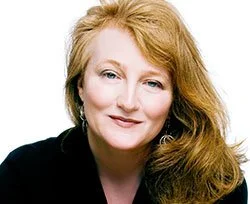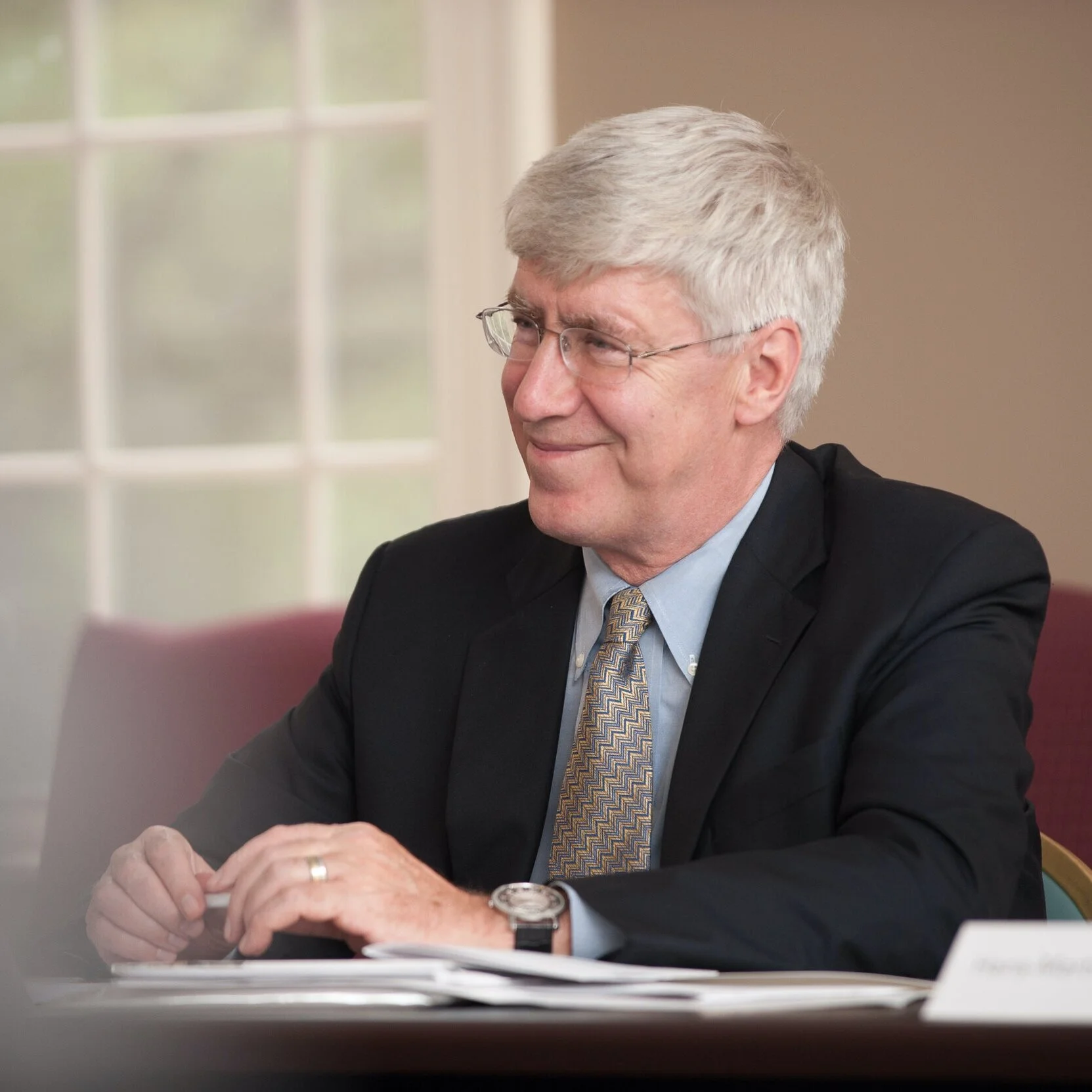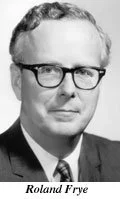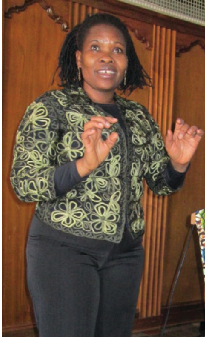
Founding Mission: Cultivating A Theological Renaissance
Theology requires fresh germination. Progress grows out of research, sound confidence, and an excitement at the possibility of future developments. The pursuit of the knowledge and truth of God's love and concern for humankind is a challenge that the Center accepts with dedication and enthusiasm.
Research in the physical and natural sciences, as well as the humanities, is growing at an astounding rate. Theology also requires research, especially if it is to grow in the right direction, to reach new and expanding communities, and to meet the challenges of rapidly changing world events. Unfortunately, theology has not kept pace with its research requirements.
Existent universities and seminaries are not equipped to undertake the type of advanced theological research that is now needed.
Dr James McCord (Founder) in 1978
What People Say
Our History
The Center was founded in 1978 by a visionary Board of Trustees led by James I. McCord. Dr. McCord was President of Princeton Theological Seminary and an internationally revered leader in theological education. Informed by T.F. Torrance’s notion of theological science, he conceived of a research center for theology that was interdisciplinary in character, modeled on Princeton’s Institute for Advanced Study. Named the Center of Theological Inquiry to emphasize its exploratory approach to research, CTI as it became known was incorporated with the State of New Jersey as a nonprofit and granted 501(c)(3) tax status by the IRS.
At the heart of McCord’s intention for the Center was a new building for interdisciplinary inquiry worthy of its historic setting on Stockton Street in Princeton, New Jersey. The Center was intentionally located in one of the world’s research capitals to give its scholars ready access to vast intellectual riches. Named after Henry Luce, founder of Time magazine, the new Luce Hall lay on the main street of American and world history. It was built on the site where Washington and Rochambeau encamped their armies en route to victory at Yorktown. It is situated opposite Morven, the 18th Century home of Richard Stockton who entertained George Washington and James Madison there when the Congress met in Princeton in 1783. A Signatory to the Declaration of Independence, Stockton was also a slave owner, a story the house now tells as a museum honoring Black lives. In the 20th Century, Thomas Mann lived and wrote in exile from Nazi Germany in a house across the road from where the Center now stands. The conversations in Mann’s émigré circle in Princeton on the future of civilization amid world war remind scholars on Stockton Street that ideas matter in the cause of truth.
As McCord wrote on the eve of Luce Hall’s opening in 1984, the Center’s new building was designed to be the environment most conducive to fostering fresh thinking on a host of problems facing religion and society. While the Center’s interdisciplinary mission was to be rooted in the study of Christian and comparative theology, its program was to be open to researchers in all branches of inquiry in the natural and social sciences, the humanities, and law. The first research proposal the Center reviewed was from two scientists, Iain Paul and William Peat, reflecting a central but not exclusive interest in the relationship between theology and science. CTI’s nonprofit Board was to be open to trustees of any faith who supported its founding purposes. They included David Lilienthal, a son of Jewish immigrants who chaired public bodies for Presidents Roosevelt and Truman, Robert Meyner, a Governor of the State of New Jersey, Henry Luce III, and the philanthropist Sir John Templeton, who gifted the Center’s townhouses for visiting scholars. With changing needs, CTI now rents apartments from Princeton Theological Seminary, its close neighbor with a renowned library.
McCord served as Chancellor of the new Center and recruited eminent scholars like Princeton University’s Paul Ramsey among its first Members, as CTI’s visiting fellows are called. This record of convening prominent and promising researchers in residence at CTI has continued over five decades. In 1986 Dr. McCord was awarded the Templeton Prize in recognition of his role in founding the Center of Theological Inquiry to advance the study of theology and science. He stepped down in 1989, having realized his dream of establishing the Center. McCord was succeeded as Chair of the Board of Trustees by Roland Frye, a distinguished Professor of English Literature at the University of Pennsylvania. CTI’s leadership was entrusted to the new position of Director, appointed by the Board of Trustees.
Professor Daniel Hardy held the Van Mildert Chair in Divinity at the University of Durham when he accepted the Board of Trustees’ invitation to become the Center’s first Director. Hardy proved a gifted steward of Dr. McCord’s interdisciplinary theological vision for CTI and a much-loved mentor to generations of early-career theologians. Among many other accomplishments during his directorship, the seeds of today’s global Scriptural Reasoning movement among Jewish, Christian, and Muslim scholars were sown at CTI when Peter Ochs and David Ford were in in residence with Dan, as he was affectionately known. Above all, during his time as Director, Dan Hardy gave deep, sustained, and rigorous thought as a theologian of the church and the academy to the meaning of interdisciplinarity for theological inquiry. He saw interdisciplinarity as integral to the discipline and practice of theology, not an optional interest and activity. By passing theological questions through the prism of other disciplines, a spectrum of light on reality could be seen that would not otherwise be observable to those seeking to understand God and God’s ways in the world.
Hardy was succeeded in 1995 by the Rev. Dr. Wallace Alston, the senior pastor of Nassau Presbyterian Church in Princeton. Alston’s global ecumenical vision for the Center led to large-scale international initiatives to foster theological scholarship in South Africa, India, and post-Communist Eastern Europe. His generous support for theological exchanges between North Atlantic, Eastern European, and Global South scholars led to a series of working groups and publications, culminating in the magisterial four-volume series on God and Globalization edited by the Christian ethicist Max Stackhouse. CTI’s interest in theology and science also flourished in the notable collaboration between Michael Welker and John Polkinghorne. Alston appointed two eminent academic faculty as senior scholars to run the research program: for a short time Don Browning, a practical theologian from the University of Chicago; and then Robert Jenson, a systematic theologian at Gettysburg Seminary and St. Olaf College. Universally known as Jens, his direction of the Center’s research seminar and his wife Blanche’s hospitality were much appreciated by generations of visiting scholars.
When Alston retired in 2005, he was succeeded by Professor William Storrar, who was invited to become Director from the University of Edinburgh, where he held the Chair of Christian Ethics and Practical Theology and directed the Centre for Theology and Public Issues. These interdisciplinary interests led to an early inquiry on Christian theology and international law with Jeremy Waldron, Robin Lovin, and Mary Ellen O’Connell, 2006-10, and a partnership with the International Bar Association on finding common ground between Islamic Law and International Law. The comparative research papers on human rights questions exchanged at CTI were then presented at a Salzburg Global Seminar on the eve of the Arab Spring.
In September 2005 Storrar initiated the Global Network for Public Theology to foster collaboration among the growing number of centers and programs in theology and public issues around the world. In 2007 CTI convened the GNPT’s founding consultation in Princeton, where the first issue of the International Journal of Public Theology (Brill) was launched. Today the network includes some fifty centers and programs on six continents.
After working closely with Board Chair Fred Anderson to lead CTI through the challenge of the 2008-9 financial crash, Storrar introduced a resident program of themed interdisciplinary inquiries on questions of global concern. From 2012 to the present this program has attracted an increasingly diverse range of visiting researchers; won peer-reviewed research grants totaling over $8 million from external funders like the John Templeton Foundation, the NASA Astrobiology Program, and the Templeton World Charity Foundation; and led to CTI’s first inquiry in cooperation with Princeton University. In this period, CTI has convened theologians, scientists, legal scholars, philosophers, architects, and scholars of Islam among other disciplines on topics ranging from human evolution to human thriving, the societal implications of life in the universe, and religion and the environment. The climate crisis was addressed by Professor J. Kameron Carter from a Black Studies perspective in CTI’s first public lecture after the Covid lockdown. The lecture was sponsored by trustee Judith Scheide in memory of her late husband, William H. Scheide, a Princeton philanthropist and champion of civil rights, and a founding trustee of the Center.
As Director, Storrar developed the Center’s practice of interdisciplinary theological inquiry. This was expressed in two institutional initiatives. First, CTI became a pioneer in the new field of the astrobiological humanities, considering the societal implications of the science of life on and beyond Earth. Building on its NASA-funded inquiry on this theme, CTI is now a partner institution in the University of Cambridge’s Leverhulme Centre for Life in the Universe, working in collaboration with Harvard University, ETH Zurich, University College London, and the University of Colorado Boulder. The Center hosts an annual Humanities Colloquy in Princeton on the origins, nature, and place of life in the universe. And second, the Center’s building has been redesigned as a new kind of research institution for theologians, humanists, and scientists to think together in three dimensions: virtually around the world; face to face around the table; and in public around questions of common concern. This light-filled sphere for collaborative thinking opened in June 2024 thanks to the commitment of the Board of Trustees and its Chair Roy Lennox to CTI’s long term future.
In July 2025, Tom Greggs, Marischal Professor of Divinity at the University of Aberdeen, succeeded William Storrar as the fourth Director of the Center of Theological Inquiry, beginning a new chapter in CTI’s history of casting light. Greggs has begun his tenure by securing CTI’s largest ever research grant.
Our Funding
The Center of Theological Inquiry is a donor-funded not-for-profit 501(c)(3) organization, inviting tax-deductible gifts from the public and applying for peer-reviewed research grants.







